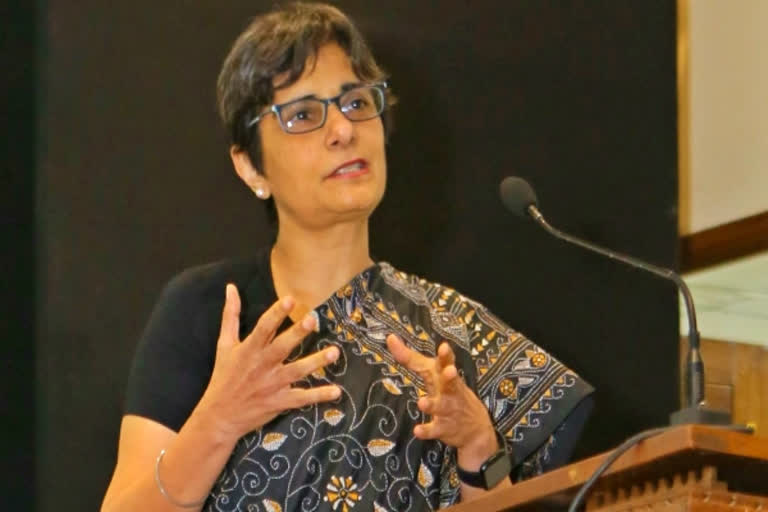Hyderabad: India continues to break its daily record of COVID-19 cases as cases are rising exponentially across the country. On Wednesday, India reported 2,95,041 new COVID-19 cases, highest till date. With the new additions, the total tally of cases in the country has increased to 1,56,16,130 with 21,57,538 active cases. In light of the spike in infections and deaths across the nation, ETV Bharat held a conversation with virologist Gagandeep Kang.
ETV Bharat:Cases in the second wave have increased rapidly compared to the first wave. How can India contain this wave? How serious is the second wave? What do you think is the reason for such a rebound of the covid wave? Some say it may go up to four lakhs a day, what is your view?
Gagandeep Kang:In the second national wave, cases increased much faster than the first time. This is because, unlike the first wave, we had not been following Covid appropriate behaviour and also possibly because the virus variants are more infectious than we saw previously. Since we cannot instantly vaccinate everyone, the wave can only be contained by ensuring that people don’t come in contact with each other without appropriate precautions. This means using good quality masks, maintaining distancing and ensuring good ventilation when indoors.
This second wave is very serious because the very large numbers of infections mean that even if it is a small percentage of infected people who get very sick, the absolute numbers will be big and can overwhelm the healthcare system. It is very possible that the cases will continue to climb if we do nothing, but fortunately, states have begun to impose restrictions now, so I hope that our pessimistic estimates of 4 lakhs and over which are possible, can be prevented.
Also read:India records nearly 3 lakh new cases, 2k deaths in 24 hrs
ETV Bharat:We boasted about our vaccine production capabilities but finally landed in a huge shortage. What led to this situation?
Gagandeep Kang:There are three main reasons. First, while India’s manufacturing capacity for vaccines is large, the materials needed to make vaccines are not all available in India. We have to compete in the global supply chain and every vaccine manufacturer in the world is trying to buy what is available.
Secondly, our vaccine manufacturers projected very optimistic estimates of how quickly they would be able to upscale their production. For a variety of reasons, this has not happened and this has resulted in the shortage.
Third, for vaccine manufacturers, knowing that they have an assured market and how they are required to provide within the country and what they can export is essential for their planning (and these needs to ensure that companies have enough cash flow to function). If there is no predictability, and the government orders vaccine piecemeal with short timelines at very low prices, it makes it very difficult for the industry to function optimally.
ETV Bharat:After this one-year intense research in virology, are we in a position to predict the future behaviour of the virus? or get stronger?
Gagandeep Kang:In this past year, we have learnt a great deal about the behaviour of this virus and have a reasonable ability to predict what will happen next. As with all viruses, this virus would like to be able to spread more easily so that it can keep multiplying. That means that it will try to become more infectious and if vaccines are used widely, it will try to escape the immune response of the host. Fortunately, because the spike protein of the virus is essential for infection and there is a limit to how much the spike protein can change, it is possible that all the variation that we are likely to see in the virus might be seen in the next two years. While random mutations may make some strains capable of severe disease, these mutations will also need to be with viruses that spread well, and since viruses that kill their hosts cannot easily multiply, I do not expect to see increasingly severe disease become the norm in the future.
ETV Bharat:How do you assess the consequences of the imposition of a countrywide lockdown in this 2nd wave? Can economic and political reasons be allowed to influence scientific decisions? Do you think governments address the issues properly to control virus?
